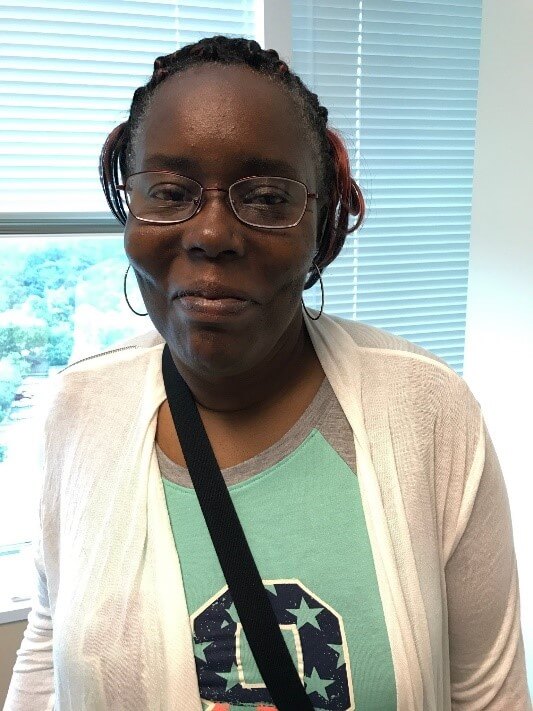This two-day training provides participants with methods and strategies for using cognitive-behavioral and complex trauma frameworks to gain a greater understanding of why homeless patients behave in ways that seem self-destructive. The training also enables participants to understand their own emotions and behaviors related to these complex situations. As a result, and with sustained practice, participants acquire and improve on skills related to metacognitive awareness and perceiving small increments in change.
Provider Stories: Patient-Provider Power Struggle
David Buck, M.D., M.P.H., has agreed to share his own experiences with complex patients. This specific story highlights the importance of doctor-patient interaction when caring for complex patients. Welcome to our newest segment:
Provider Stories: Patient-Provider Power Struggle
Using Technology to Transform Health Care in Houston
Published On: September 13 2017 in National Center for Complex Health and Social Needs. This is an interview with Kallol Mahata. Read the article here.
At the heart of complex care is identification: Where and how do we find the most vulnerable patients? When our team started studying individuals in Houston who tend to overuse emergency department and inpatient visits, we realized our community was siloed in its approaches.
Ms. Charlott: Before, During, and After PCIC


Ms. Charlott has made significant improvements in managing her health since being featured as our June Human of Healthcare.
Before enlisting the help of PCIC, she found herself being shuffled around multiple doctors to find a diagnosis. The lack of communication between providers only caused her to start losing energy and hope of ever recovering from her illnesses. If it were not for her dedication to getting better, her support system made of family and PCIC, and her faith, she would have given in to her illness.
Mr. Trondail: From Day 1 to Graduation
"When I came into this program it was like, really, really, how can I say this, at a time I needed support. My closest family member is 1,500 miles away. I was going through something, and the next thing I know, these wonderful people show up on my doorstep, and it was like they were basically more than just a support group for me to gain and get my health together. They have been there for me, when I say, they have shared good positive tears, tears of joy…they have been there for me. I really appreciate it… This is what the outcome has been for me so far, and I know it’s going to get a lot better." says Trondail.
Caring for High Need, High Cost Patients
Podcast published on: March 2017 in Review of Systems. Listen to the complete interview here.
Dr. David Buck of Patient Care Intervention Center and Baylor College of Medicine Houston talks with Thomas Kim about caring for superutilizers - high need, high cost patients.
Social Interventions Can Lower Costs and Improve Outcomes
Published On: March 2017 in NEJM Catalyst. This article is by David S. Buck, MD, MPH & R. Conor Holton-Burke, MS. Read the story here. Available on Patient Engagement as well.
It was a hot and humid day in Houston — the oppressive sort that makes one contemplate retreating to air conditioning immediately after stepping outside. Our patients did not have that luxury.
Breaking Boundaries - Health systems are evolving and advancing their strategies to address social determinants of health
Published On: February 2017 in Deloitte Center for Health Solutions. Read the story here.
More than a decade ago, family physician Jeffrey Brenner, inspired by police department strategies to map crime data to identify "hot spots," began to use ambulance records and emergency department (ED) data to predict and aim to address health care hot spots.
Tackling Patients' Social Problems Can Cut Health Costs
Published On: January 2017 in Kaiser Health News. Read the story here. This KHN story also ran on PBS NewsHour.
HOUSTON — Donning a protective gown, rubber gloves and a face mask, Dayna Gurley looks like she's heading into surgery. But Gurley is a medical social worker charged with figuring out why her client, a man who uses more health care services than almost anyone else in Houston, has been in three different hospitals in the last month.
The patient, who asked not to be identified, has chronic massive ulcers, AIDS and auditory hallucinations. He rents a cot in another person's home but is more often homeless, with no family to help him.
"A way to save money when half of all health costs is spent on a fraction of patients" - PBS NewsHour
Published On: January 2017 in PBS NewsHour. Read the story here.
Health care "super-utilizers" make up just 5 percent of the U.S. population but they account for 50 percent of health care spending. As health care costs continue to rise, providers are trying to figure out how to find these patients and get to the root of their problems. But the looming repeal of the Affordable Care Act may disrupt those efforts.
- 1
- 2

